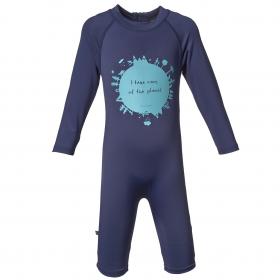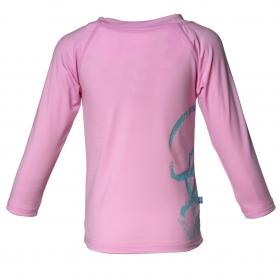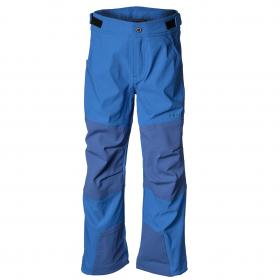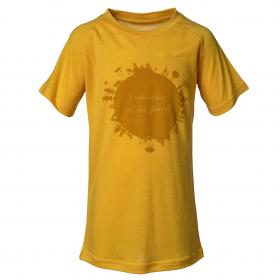Isbjörn setzt Mission der echten Nachhaltigkeit für SS21 fort
- Beliebte Sun-Kollektion jetzt mit recyceltem Nylon
Die Einführung neuer Produkte zu jeder Jahreszeit hat für die Premium Tech- und Eco-Outdoor-Kidswear-Marke Isbjörn aus Schweden keine Priorität mehr. Stattdessen wird das Label sein grünes Versprechen fortsetzen, die nachhaltigsten Stoffe und Herstellungsverfahren zu verwenden, um seine bestehenden Produkte zu optimieren und diese so noch nachhaltiger und langlebiger zu machen.
Isbjörns stilvolle, funktionale Sonnenkollektion SPF50 + wird ab SS21 aus recyceltem Nylon hergestellt. Jedes Produkt der Serie, vom Sun Jumpsuit bis hin zum Sun Hat, ist mit Isbjörns „Green at Heart“ Gütesiegel versehen und wird damit ohne schädliche Chemikalien produziert. Ohne Kompromisse bei der Produktleistung wird die Sonnenschutzserie SS21 aus einer robusten Mischung aus recyceltem Nylon (87%) und dem zugelassenen Stoff Elastane bluesign® (13%) hergestellt, die so zum nachhaltigen Schutz für Kinder und unseren Planeten beiträgt.
Isbjörn glaubt fest an die Langlebigkeit seiner Produkte und bietet damit den Outdoor-Abenteurern von morgen wiederverwendbare technische Stoffe, herausragenden Style und echte Nachhaltigkeit. Die junge, bewusst denkende Zielgruppe, inspiriert von Aktivisten des Klimawandels wie Greta Thunberg, wendet sich zunehmend vom Massenkonsum ab, indem sie gebrauchte und sogar gemietete Kleidung trägt.
„Unser unbestreitbares Angebot von herausragender Haltbarkeit ist unsere Silberkugel und wir sind dabei demütig, die Erfahrungen unserer Kunden zu hören, die nach vielen Jahren immer noch unsere Produkte teilen und wiederverwenden. Durch die Verdoppelung der Lebensdauer eines Kleidungsstücks wird seine Auswirkung auf die Umwelt um die Hälfte reduziert ... und das ansteigend!“ - Maria Frykman Forsberg, Gründerin und CEO von Isbjörn aus Schweden
Durch die „Green @ Heart“ Verpflichtung zur Herstellung langlebiger, „kompromissloser“ Produkte ist Isbjörn die erste Outdoor-Kindermarke, die ein bluesign®-Systempartner geworden ist. Es gibt fortan keine neuen Produkte, nur einige weitere Farben und noch nachhaltigere Updates. Zu den Highlights des Sortiments gehören ebenfalls die Tencel® T-Shirts, die jetzt zu 100% aus Naturfasern (80% Tencel und 20% Merinowolle) bestehen, wie auch die extrem haltbare Trapperhose aus strapazierfähigem Cordura® und die „Heavy Duty“ Hardshell Regenbekleidungskollektion.
Maria Frykman Forsberg, CEO von Isbjörn aus Schweden, weiter: „Ich bin stolz darauf, meine Lieblingsstücke für Frühling/Sommer 21 sowie alle künftigen Jahreszeiten zu behalten. Wir können unsere Sun-Reihe endlich mit recyceltem Nylon aktualisieren, ganz ohne deren Produktleistung zu beeinträchtigen, und so unser gesetztes Ziel umsetzen. Isbjörn ist als Slow Fashion Marke und Unternehmen das Gegenstück zur schnelllebigen Mode. Nachhaltigkeit ist aktuell zwar das Schlagwort, jedoch bin ich der Meinung, dass echte Nachhaltigkeit etwas ganz anderes bedeutet.“
East River PR















